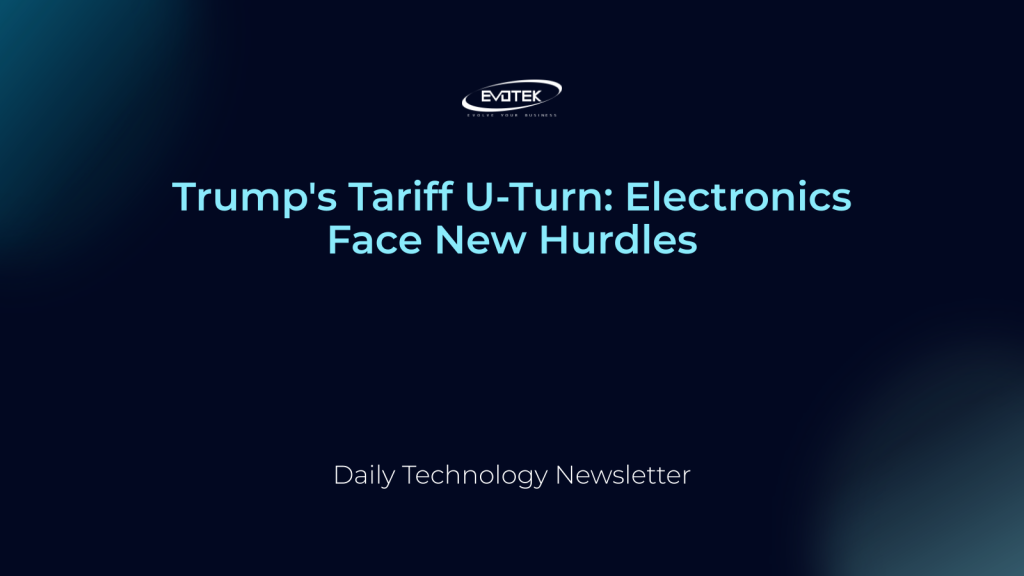The Trump administration’s trade policy with China continues to whipsaw, creating uncertainty for businesses and consumers. After briefly exempting electronics like smartphones and computers from hefty tariffs, the White House now signals a new wave of tariffs targeting these very goods.
Over the weekend, key administration figures muddied the waters. Commerce Secretary Howard Lutnick indicated on ABC’s “This Week” that the temporary reprieve for technology products is just that – temporary. He stated that these items will soon be subject to semiconductor sectoral tariffs, with details expected to be published in the Federal Register imminently.
“Those products are going to be part of the semiconductor sectoral tariffs which are coming,” Lutnick said, emphasizing the administration’s push to “reshore” semiconductor and pharmaceutical production to the United States.
White House trade advisor Peter Navarro further complicated matters on NBC’s “Meet the Press,” insisting that the previous exemptions were “not exclusions” and that the administration’s policy remains one of “no exemptions, no exclusions.”
Experts warn of the potential economic fallout. Analysts at Bank of America suggest manufacturing iPhones in the U.S. could double production costs, while Wedbush’s Dan Ives estimates a U.S.-made iPhone could retail for a staggering $3,500. Apple currently manufactures over 80% of its products in China.
The administration’s shifting stance has drawn sharp criticism from Democrats. Senator Elizabeth Warren, appearing on ABC, described the tariff policy as “chaos and corruption,” calling for Congressional intervention to curtail the President’s authority in this area.
“There is no tariff policy,” Warren said. “It’s all just chaos and corruption.” She advocated for Congress to revoke the President’s authority to declare national emergencies to justify the tariffs.
Warren also urged the Securities and Exchange Commission to investigate potential insider trading related to the tariff decisions, questioning whether Trump and his inner circle profited from advance knowledge of policy changes.
Public sentiment appears skeptical of the administration’s approach. A CBS News/YouGov poll found that a majority of Americans believe Trump’s tariffs will primarily benefit the wealthy and large corporations while increasing prices for consumers.
The ongoing uncertainty surrounding the Trump administration’s trade policy with China leaves businesses scrambling to adapt and consumers facing potentially higher prices for electronics and other goods.

 日本語
日本語 한국어
한국어 Tiếng Việt
Tiếng Việt 简体中文
简体中文